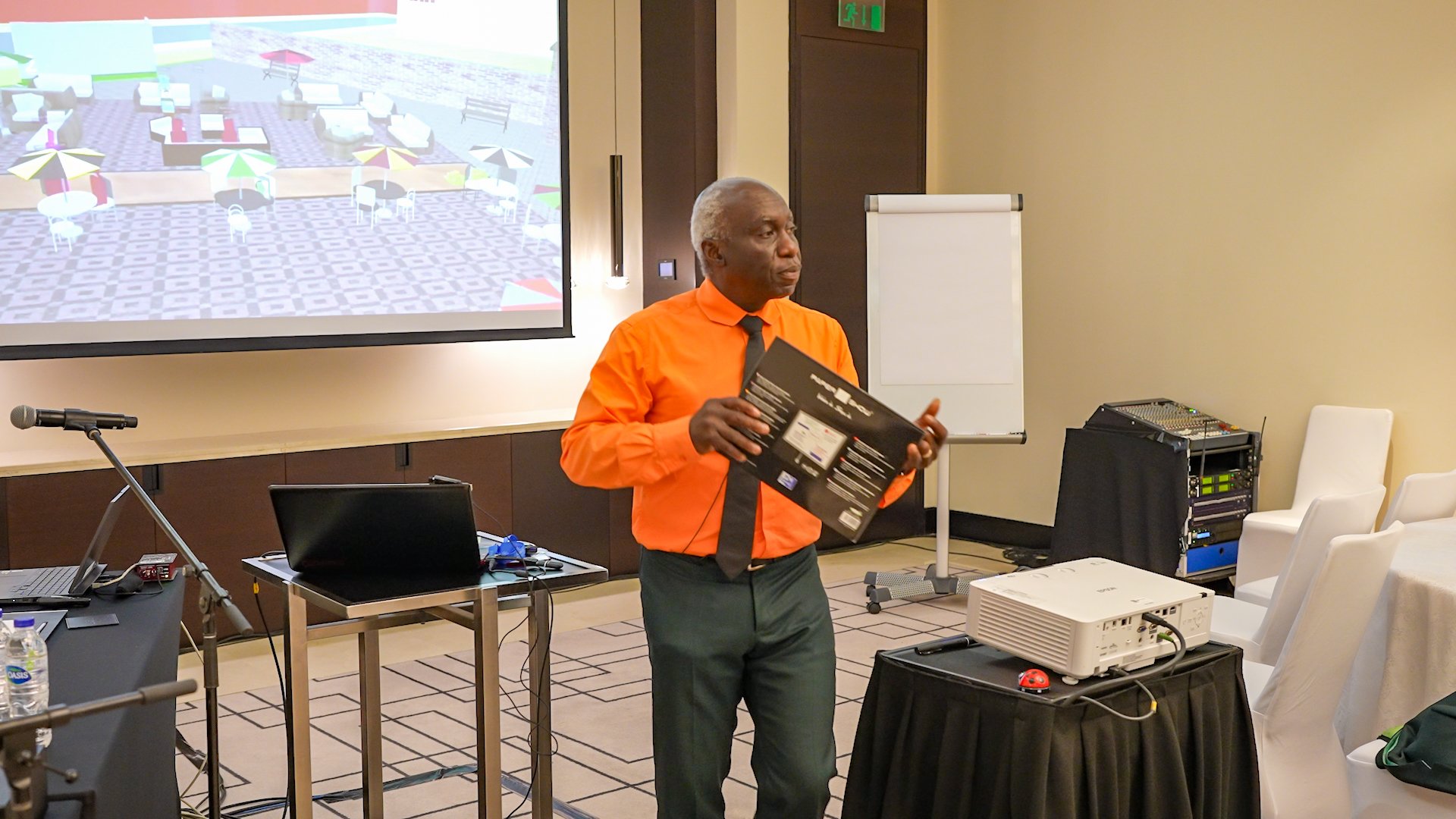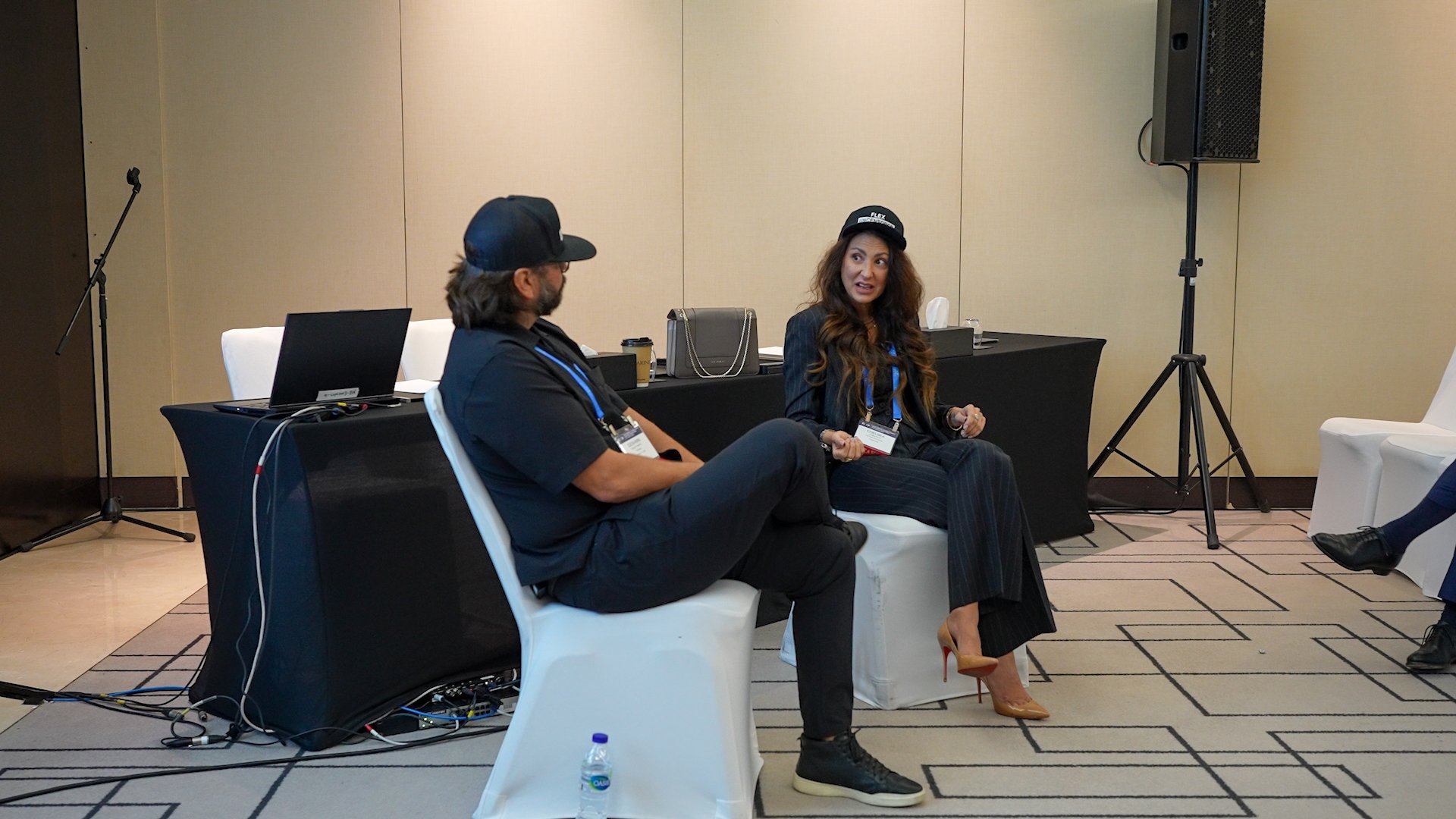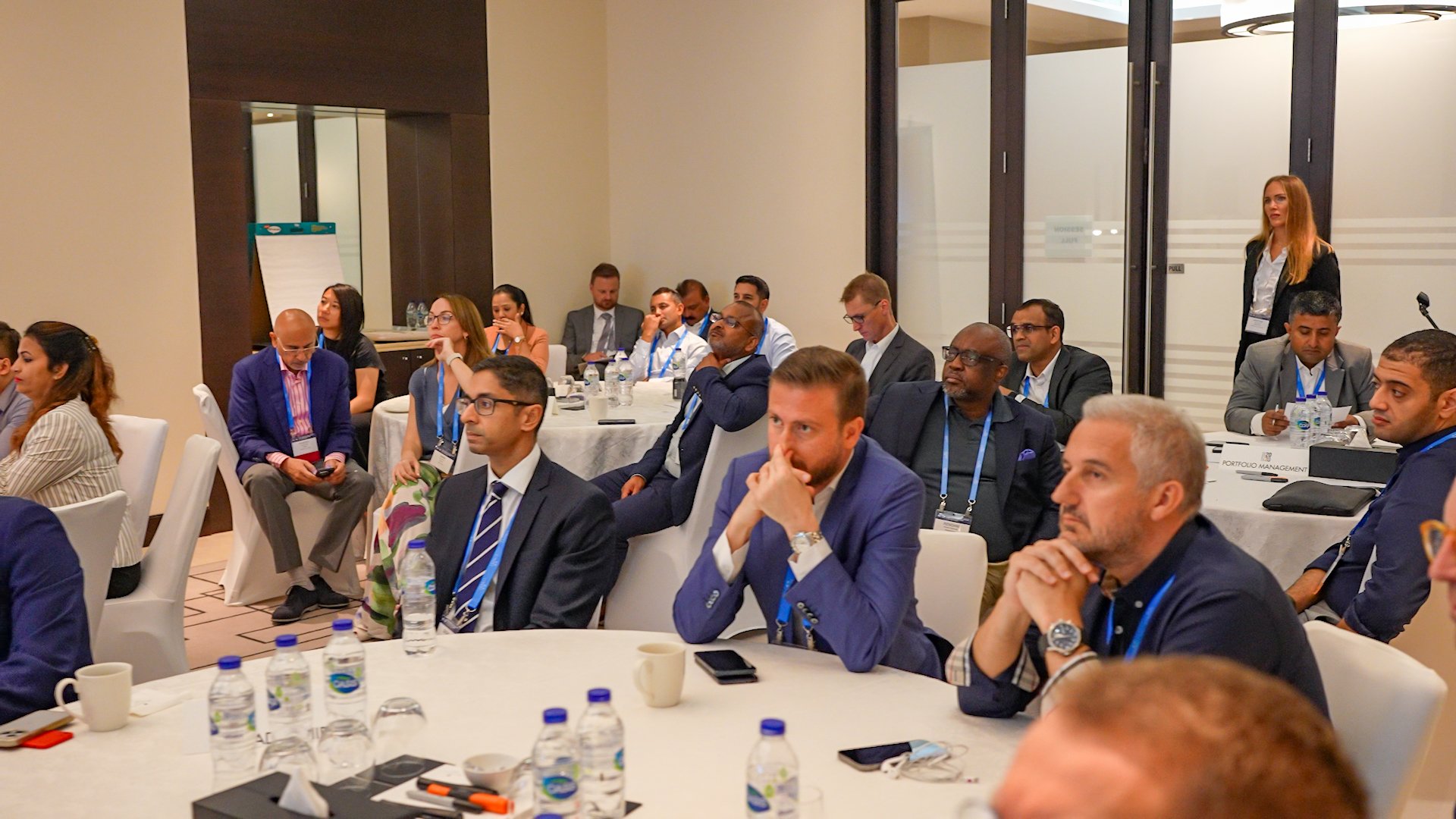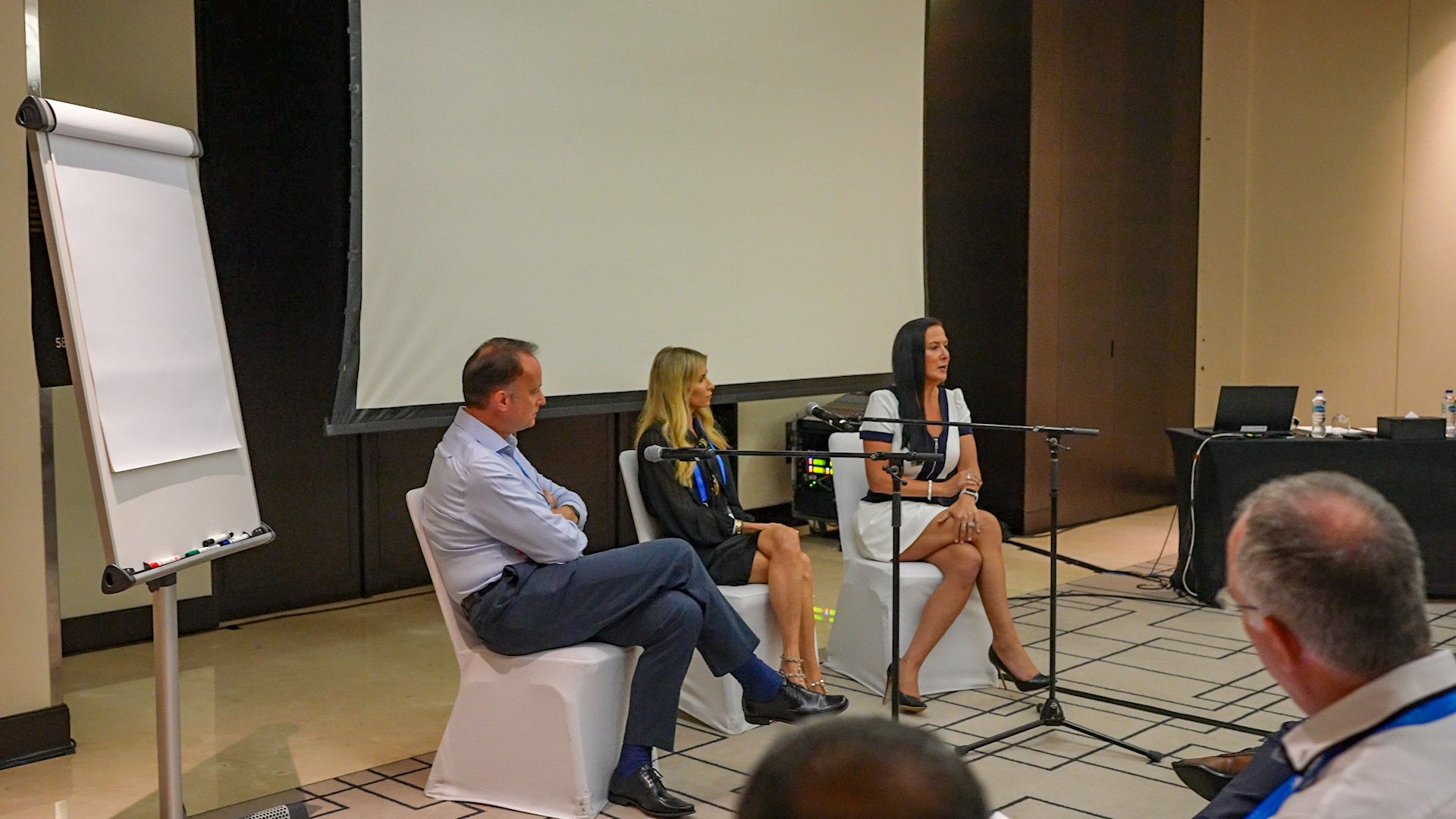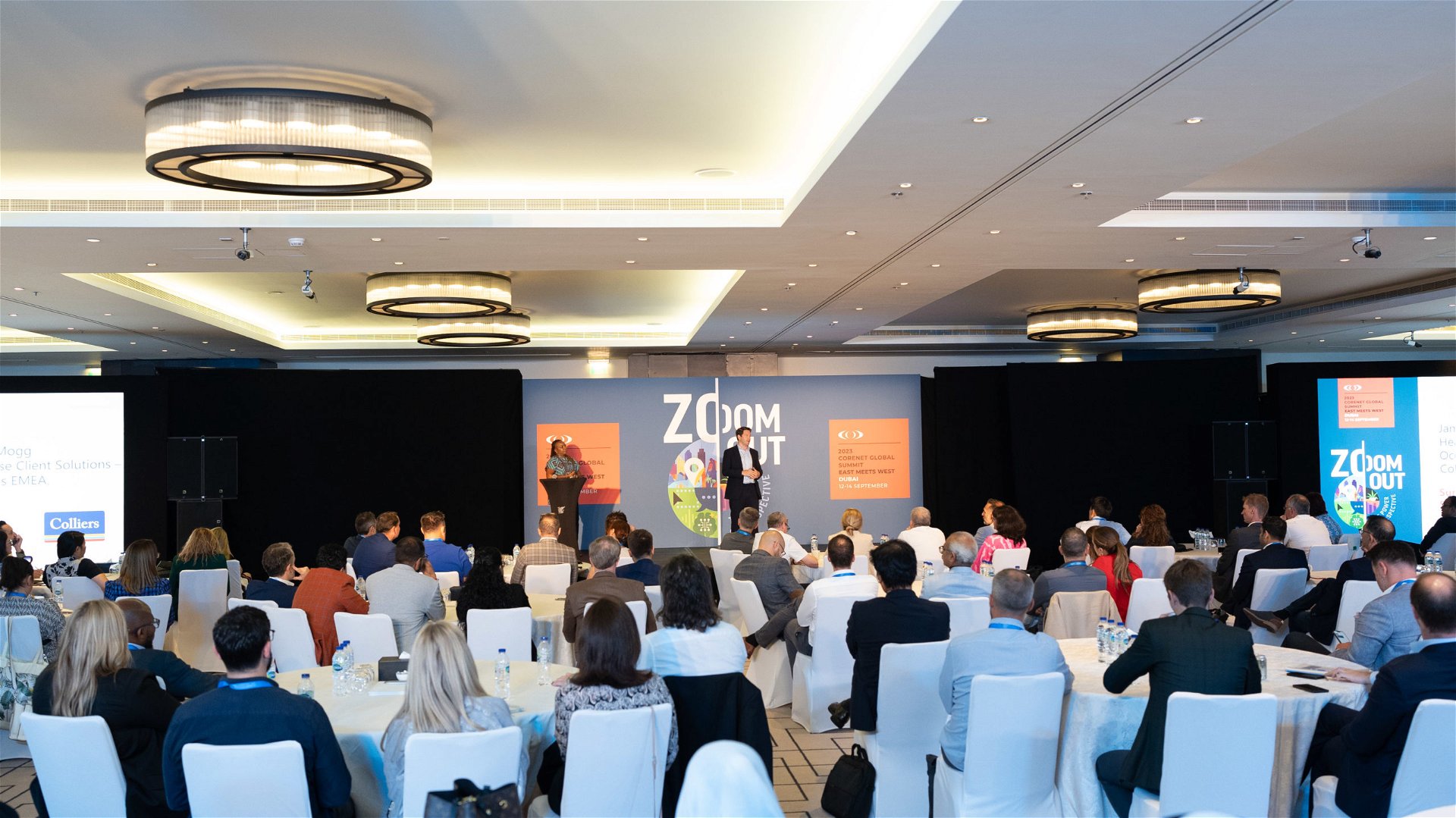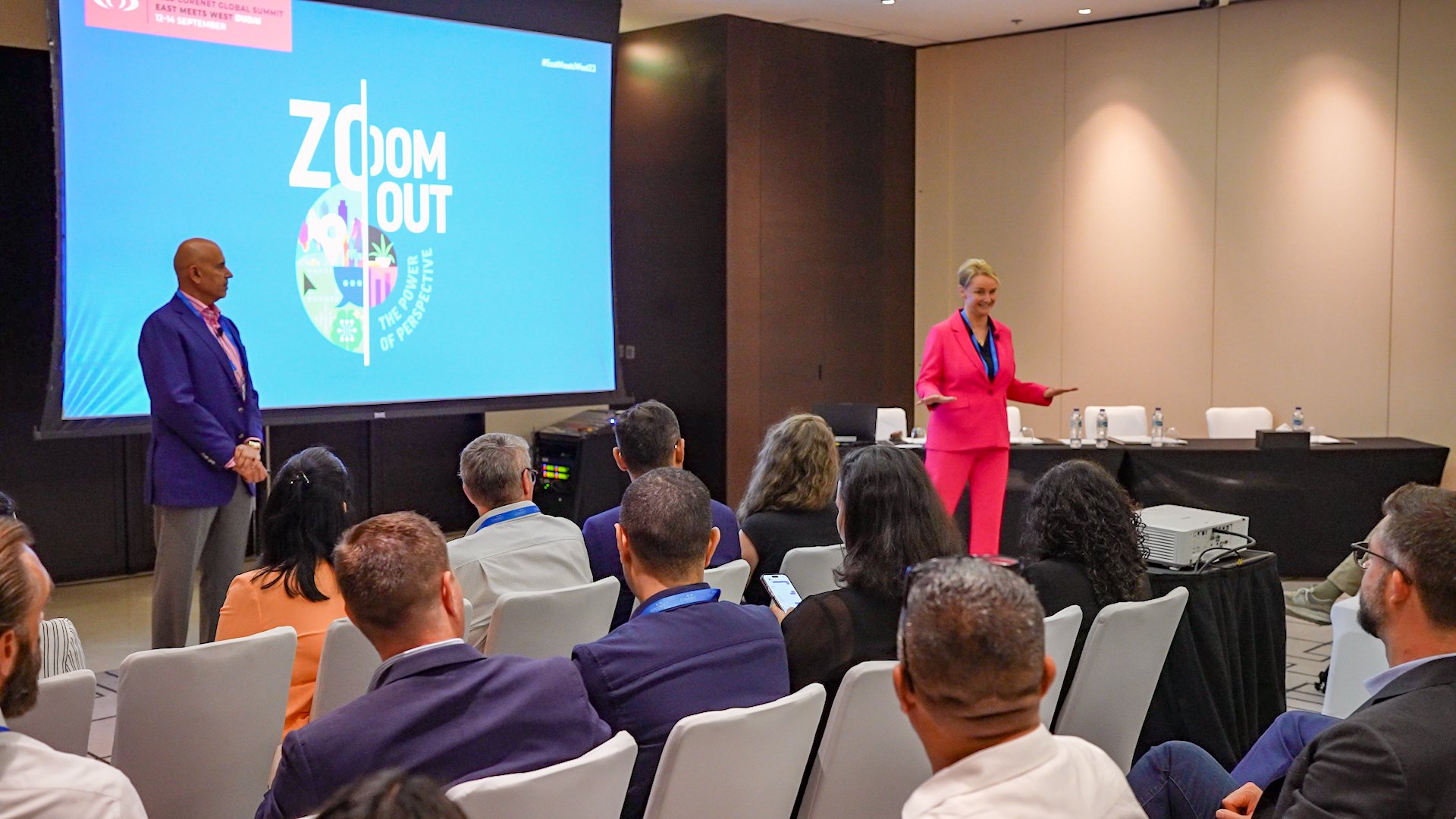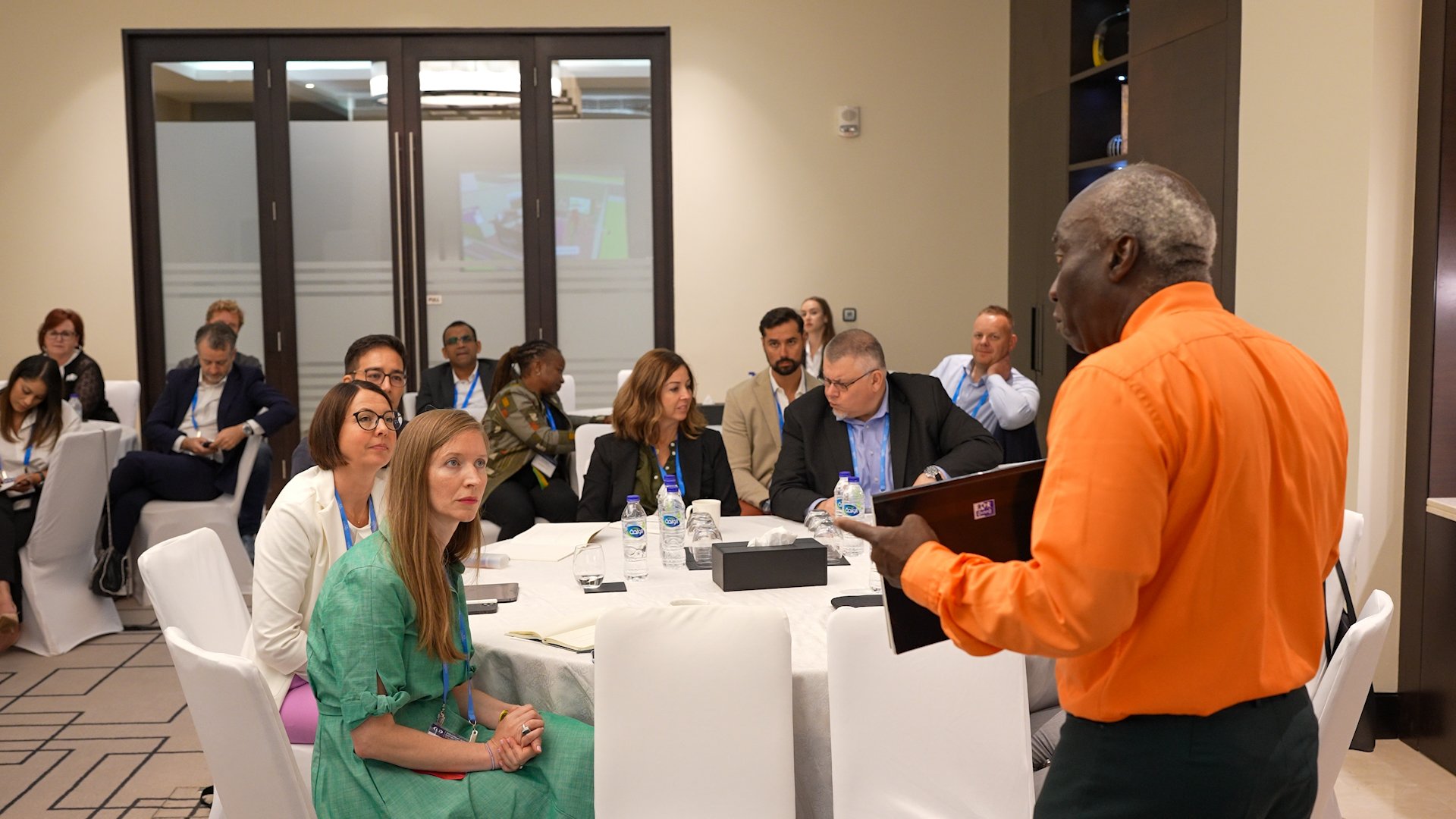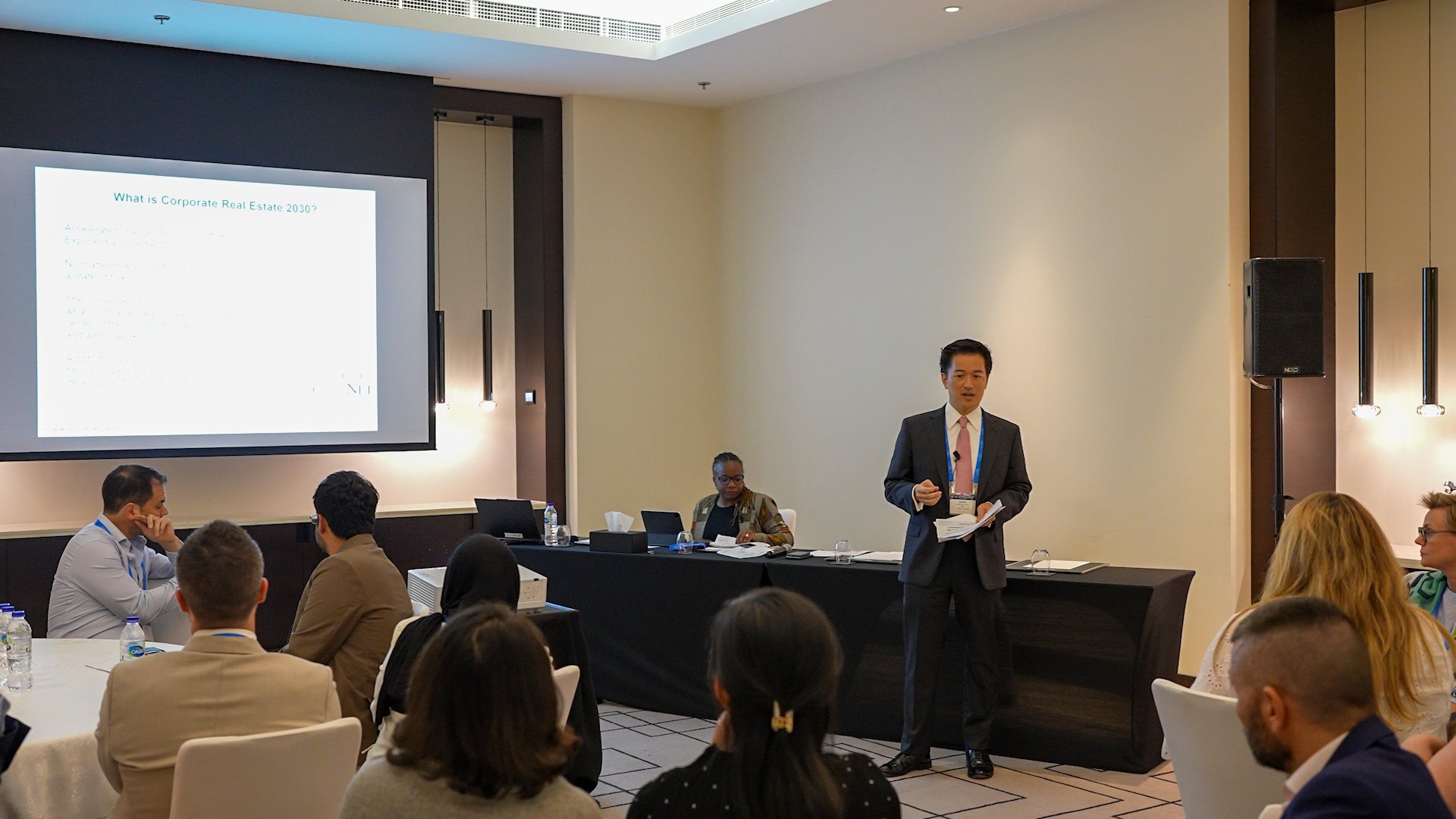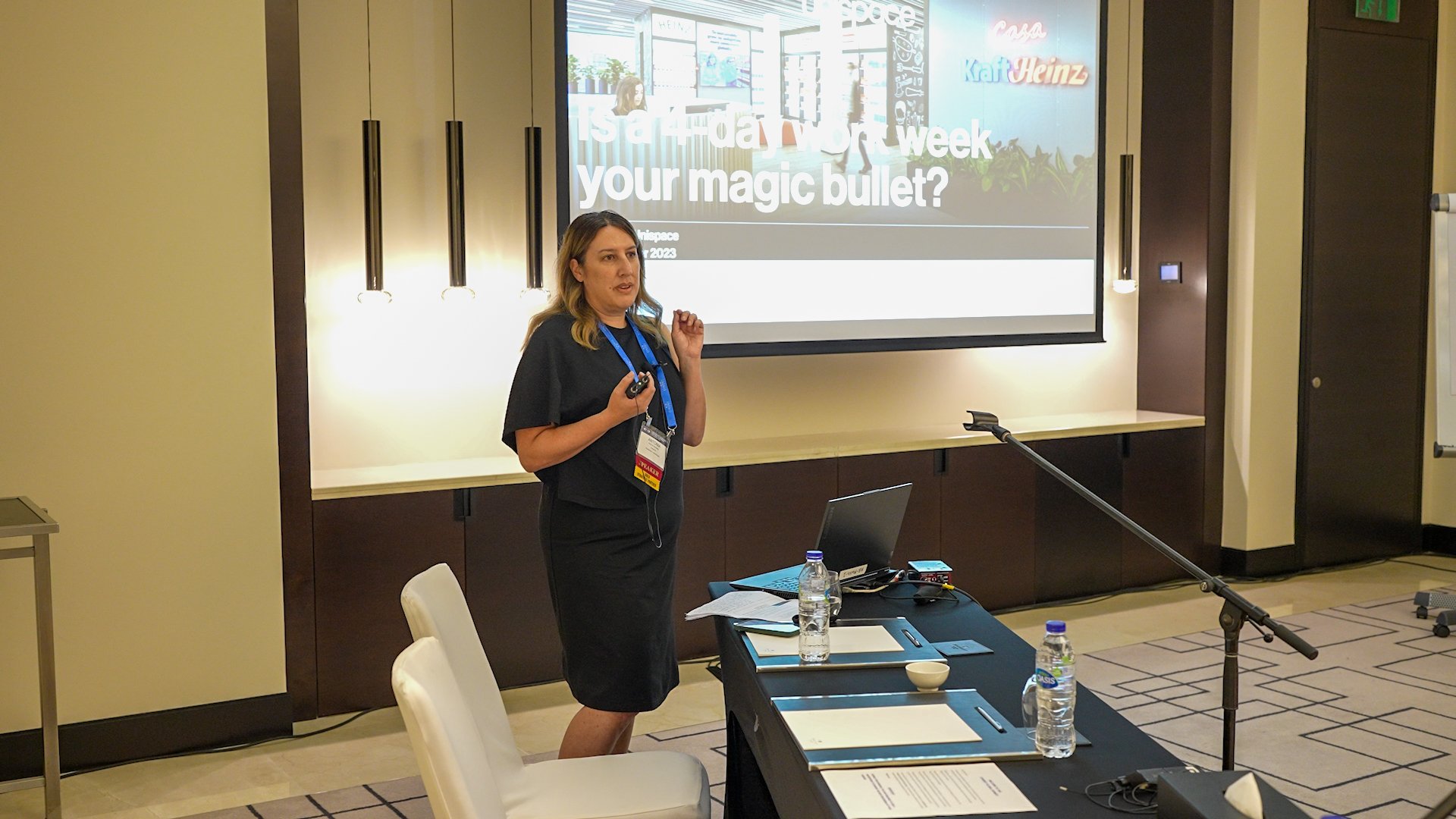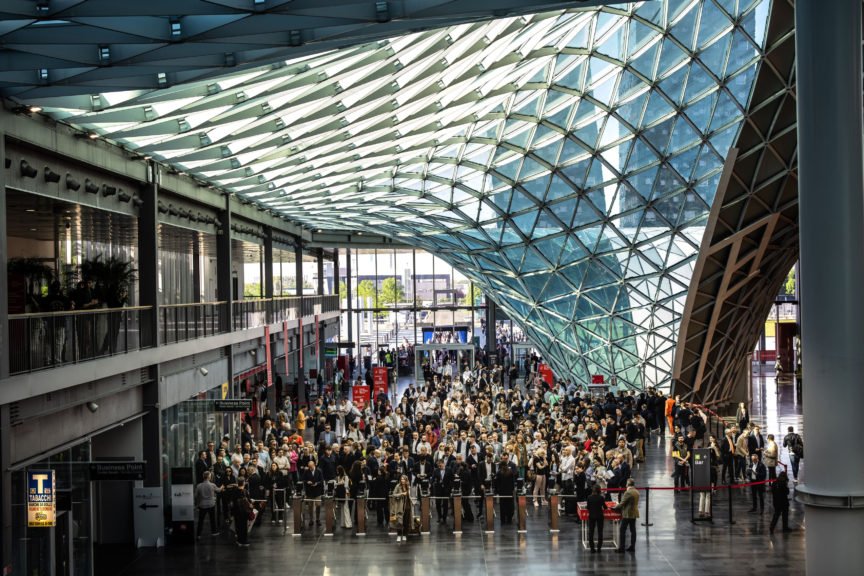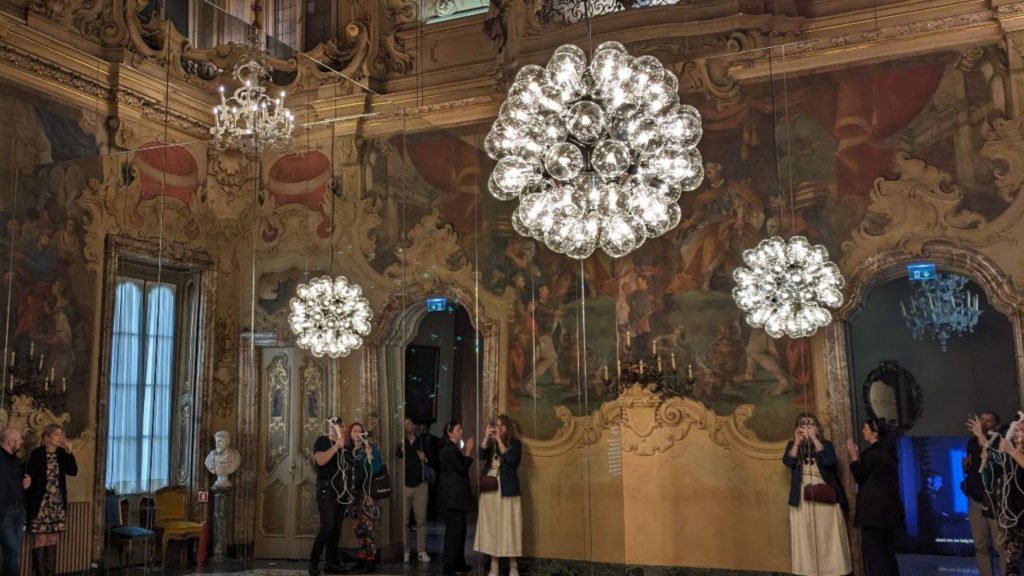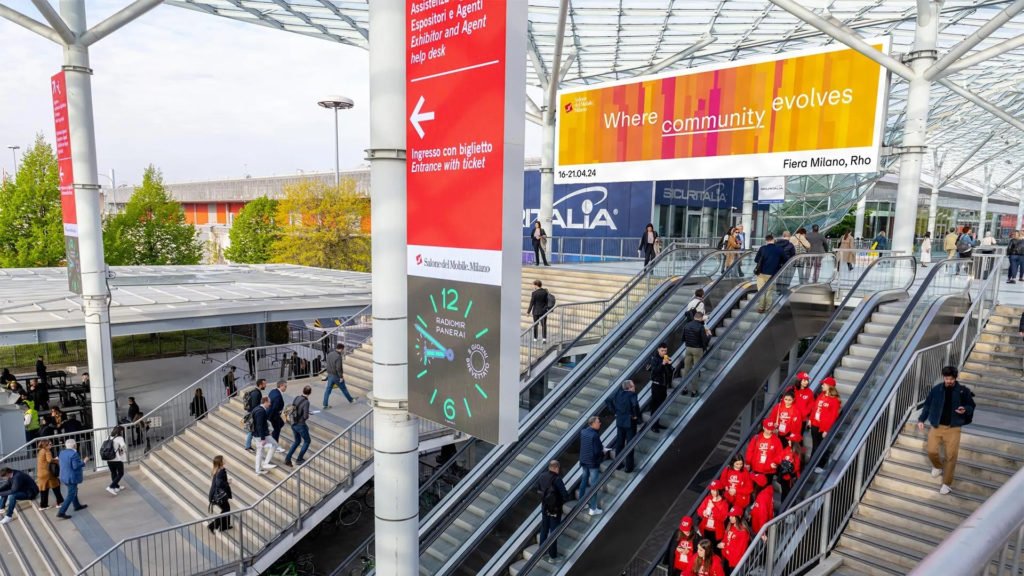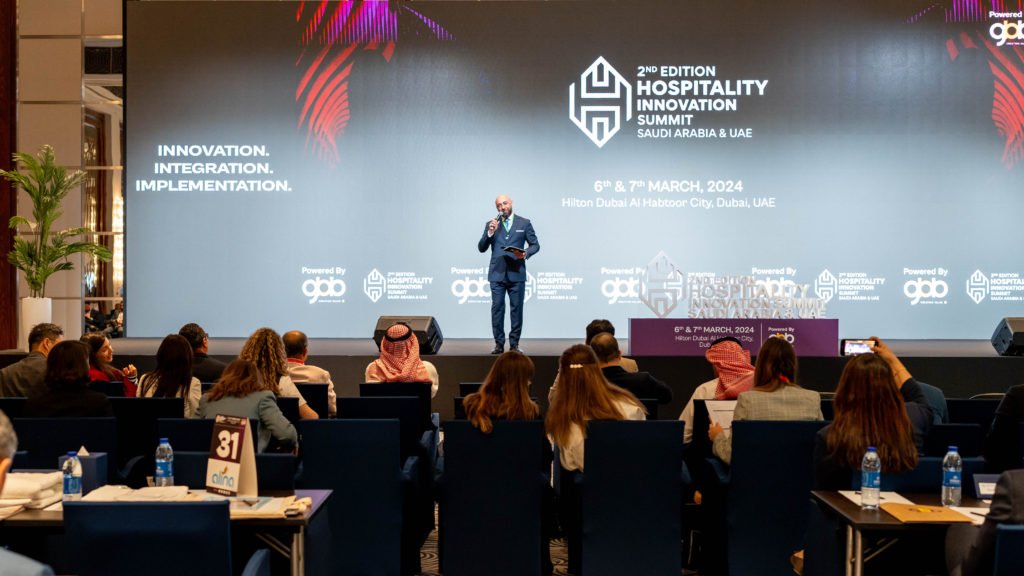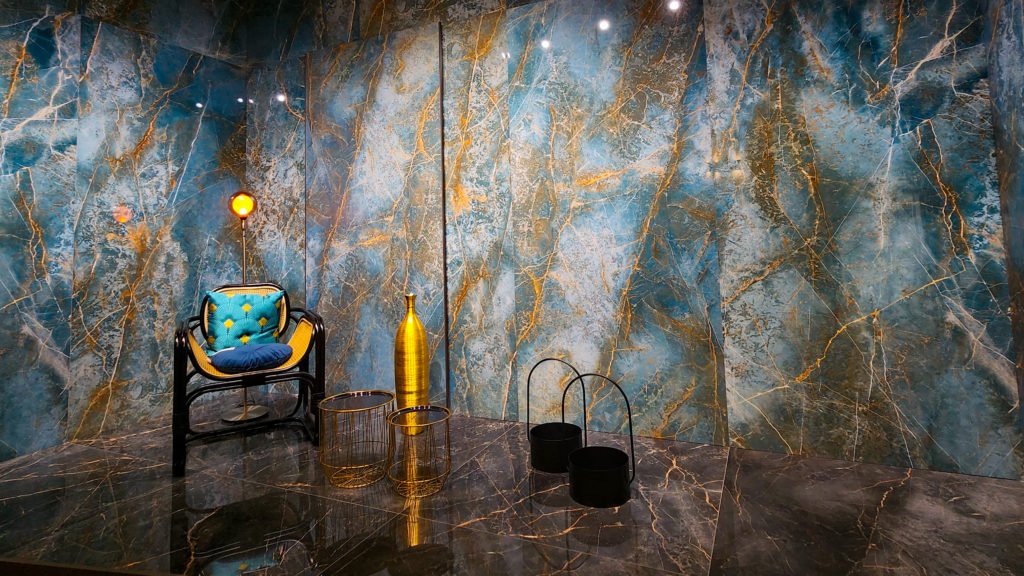The CoreNet Global Summit in Dubai started with a powerful keynote address by Eddie Obeng. That morning, Eddie brought unbridled animation to the Emirates Ballroom at JW Marriott Marquis. Donning a bright shirt and presenting without a PowerPoint Presentation, the man of the hour broke free of norms right off the bat. He narrated stories, delivered jokes, shared anecdotes and truly made the most out of a ‘start of the day’ talk. He even nudged attendees to step out of their comfort zones and interact with each other.
By the end, Eddie had not explained what the title of the Summit’ Zoom Out: Power of Perspective’ meant. Instead, he had orchestrated an experience that pushed folk to step out of rigid mindsets.
For the next two days, a schedule of thought-provoking talks and intriguing workshops followed. Four halls conducted four sessions simultaneously, and visitors tended to the topics that fascinated them most. Networking breaks interspersed between the seminars allowed real estate professionals to mingle. It was a treat to see designers and brand representatives being part of the discussions. In fact, Skyfold and Framery were Emerald Sponsors to the event, and Gensler was a Gold Strategic partner.
The level of inclusion of the design fraternity was welcome at CoreNet Global Summit, but it wasn’t unexpected. The past few years have made the importance of quality spaces abundantly clear. Interior design and architecture form an intrinsic part of Corporate Real Estate, and conversations at CoreNet Global in Dubai frequently steered towards concerns like employee well-being, flexibility and much more.
To learn more about the top five takeaways from the CoreNet Global Summit in Dubai, read on.
1. Flexibility is King – In Design and Leasing
“Flex Uncensored”
Designing ‘flexible’ offices has become crucial for delivering contemporary workspaces. From break rooms to concentration zones, curating spaces for dedicated usage is beginning to see a rise. These concepts aren’t novel or recent, but the pandemic has accelerated their manifestation. While this is no revelation, it might be intriguing that the concept has also surged in leasing Corporate Real Estate.
“We actually call them licences. They’re not leases”, Giovanni Palavicini, President of Fronteras Commercial Real Estate, Texas, corrected us. As we approached him, he had just concluded his discussion on ‘What’s Next in Flex?’
“One of my clients, a sizable corporate occupier, recently declared that they won’t take any leases more than five years from now. That’s a true recognition of what’s happening in the industry.“
– Clare Bridger, Head of Workplace and People Strategy, Incendium Consulting Ltd, UK
He educated us on what ‘Flex Workspaces’ entailed. “Flex workspace allows people to have space that they can expand a contract into based on their needs, it gives them the ability to have shorter term leases and step into spaces that are already curated and furnished that they can easily step in and start doing their business.”
Given turbulent times and raised caution amongst business owners (especially after employees discerned a clear favour for working from home), options like an expandable lease provide some relief. Clare Bridger, Head of Workplace and People Strategy, Incendium Consulting Ltd, UK, shared an incident that genuinely informed the current scenario. She testified, “One of my clients, a sizable corporate occupier, recently declared that they won’t take any leases more than five years from now. That’s a true recognition of what’s happening in the industry.”
Here, designers can play a key role in ameliorating this insecurity and bringing employees back to offices.
“Flex workspace allows people to have space that they can expand a contract into based on their needs, it gives them the ability to have shorter term leases and step into spaces that are already curated and furnished that they can easily step in and start doing their business.“
– Giovanni Palavicini, President of Fronteras Commercial Real Estate, Texas
2. Home Offices – the Biggest Competitors for Corporate Offices
“People are coming back to offices but for different reasons”
Working from Home for a prolonged period gave people a new perspective. They could tailor their workspaces to their liking and focus better in solitude. “Experience in all environments is being looked at in unique ways now”, informed Erica Chapman Wagner, Senior Vice President – Head of PepsiCo Global Real Estate – New York. “Sometimes it’s about art, sometimes it’s about sound, but in the past, it would always be focused on amenities. Today, employees think more along the lines of, ‘What do I, as an employee, get to experience when I come to the office environment?'”
In order to have employees back at offices, there is now a need to create spaces that focus on well-being and comfort. Yet again, Clare opens up a key observation. “The biggest shift I’ve seen is the change in type of office”, she says. “The demand for lower-grade offices has definitely decreased. There’s a higher demand for Grade-A offices that is intentionally fitted out for the occupiers. Features such as naturally lit spaces with higher ceilings are also becoming popular.”
“Experience in all environments is being looked at in unique ways now. Sometimes it’s about art, sometimes it’s about sound, but in the past, it would always be focused on amenities. Today, employees think more along the lines of, ‘What do I, as an employee, get to experience when I come to the office environment?“
– Erica Chapman Wagner, Senior Vice President – Head of PepsiCo Global Real Estate – New York.
To combat the comfort homes offer employees, offices must cater to more than just their socialising needs. There needs to be a greater pull than teamwork. “One development that I’m getting behind is inculcating the features of hospitality into the workplace”, says Jana Gharazeddine, Design Manager, Gensler. “Bringing in residential touches into the workplace really makes it an attractive destination for staff.”
Employee satisfaction is central, but that doesn’t have to be a client’s demand to optimise space should take a back seat. “So let’s say clients are looking at a meagre utilisation rate due to hybrid working policies. The question, then, is what can be done so that the space works harder?” proposes Sandra Garcia, Architecture and Design Manager, Steelcase. “No one wants to pay for a prime location that will not be utilised to its full potential.”
She then informs us about some innovative solutions that Steelcase has concocted. “For example, box within the box”, she begins. “A meeting room that you can build up, and if you need to remove it one day, you can do it in a day. It’s an investment, but that gives you a lot of flexibility in terms of real estate.” In current times, it is evident that products that can cater to staff’s needs and clients’ demands are critical to brand repertoires.
“So let’s say clients are looking at a meagre utilisation rate due to hybrid working policies. The question, then, is what can be done so that the space works harder? No one wants to pay for a prime location that will not be utilised to its full potential.“
– Sandra Garcia, Architecture and Design Manager, Steelcase
3. Culture and Commutes at Play
Same World, East-West Ideologies
No two places experienced the pandemic the same way. So, while generic observations help realise the direction the world is heading towards collectively, it’s difficult to say a scenario is actual across all geographies. Notably, in Corporate Real Estate’s case, factors like cultural inclinations and commute timings exist.
“I work for a Canadian company, and when we compare our [Middle Eastern team’s] ability to ask people to work from an office to how difficult it’s been for our Canadian peers, it’s a completely different ballgame”, Yamin Shihab, Vice-President, Colliers proffers. The Middle Eastern residents were subject to a shorter lockdown period – a probable reason for not growing as habitual to Hybrid scenarios as the Western regions like the US.
“I work for a Canadian company, and when we compare our [Middle Eastern team’s] ability to ask people to work from an office to how difficult it’s been for our Canadian peers, it’s a completely different ballgame.”
– Yamin Shihab, Vice-President, Colliers
“For sure, employees are more willing to go to the office in the Middle East and Asia”, Chelsea Perino, Managing Director, Global Marketing & Communications, The Executive Centre, avers. “We live in smaller spaces, in general. There are family dynamics to factor in, too. It’s common to have multi-family living in the same place. And it’s not necessarily conducive to work because all of a sudden everybody’s working from home.”
“For sure, employees are more willing to go to the office in the Middle East and Asia. We live in smaller spaces, in general. There are family dynamics to factor in, too. It’s common to have multi-family living in the same place. And it’s not necessarily conducive to work because all of a sudden everybody’s working from home.”
– Chelsea Perino, Managing Director, Global Marketing & Communications, The Executive Centre
4. The Big Question – Are Long-Term Leases nearing the end of their Prime?
Relooking Real Estate Portfolios
So far, we have seen an undeniable change in the nature of leasing. Reportedly, clients are even beginning to relook their real estate portfolios.
“Real estate is beginning to be looked at not just as an asset, but as a space that buyers can monetise”, David Chang, Global Head of Strategy, Corporate Real Estate, HSBC – Hong Kong, states. “We are looking at the right composition of a real estate portfolio between lease, freehold and flex space. Maybe you want to build in vacancy so that there is a buffer as your demand ebbs and flows.”
With the advent of Flex workspaces, will the practice of ‘leasing’ bite the dust? Martin Silvester, Global Director for Workplace, Arcadis, mentioned that while Flex Spaces might dominate a more significant chunk of portfolios and even drive greater value, the lease market shall stay strong for A-grade rentals.
“Real estate is beginning to be looked at not just as an asset, but as a space that buyers can monetise. We are looking at the right composition of a real estate portfolio between lease, freehold and flex space. Maybe you want to build in vacancy so that there is a buffer as your demand ebbs and flows.“
– David Chang, Global Head of Strategy, Corporate Real Estate, HSBC – Hong Kong
On the other hand, Iain Franklin, Managing Director, Consulting, JLL, spoke about an outlook that’s more unique to the Middle East. “We’re seeing that leases are starting to increase in lengths, and that’s quite unusual and often counterintuitive because, in the rest of the world, that’s still declining. Landlords, here, are increasing levels of flexibility. That’s giving people the confidence to take longer leases in higher quality buildings and focus on the experience so that when people come to those offices, they really enjoy that experience.”
In Chelsea’s experience, even her company (The Executive Centre) is full-capacity in the Middle East and is looking for more space to lease in 2024. In this light, Yamin presents factors that could be behind this spike. “The fact that Saudi is enforcing that many companies establish their headquarters in Saudi to win business with the government means a move in regional headquarters to Saudi the region. At the same time, the UAE continues to be a growing hub due to geopolitical issues. A lot of money is coming in from many parts of the world due to geopolitical issues. So, yes, leasing is still a demand, particularly for grade-A offices.”
“We’re seeing that leases are starting to increase in lengths, and that’s quite unusual and often counterintuitive because, in the rest of the world, that’s still declining.“
– Iain Franklin, Managing Director, Consulting, JLL
Article info
Article:
Date added:
22 September, 2023

